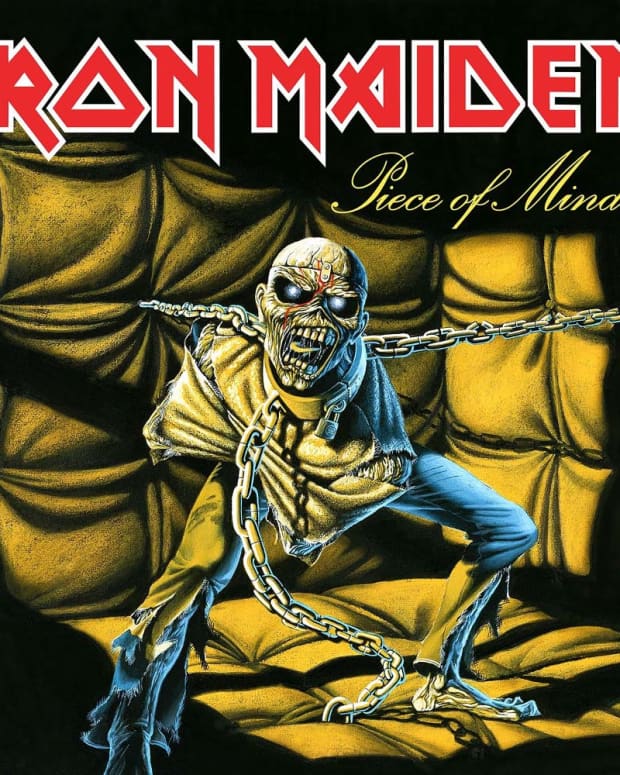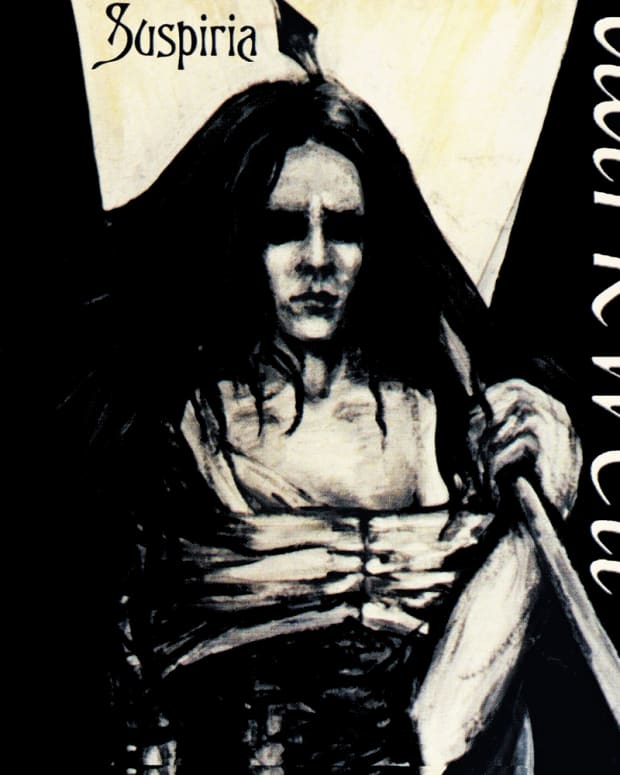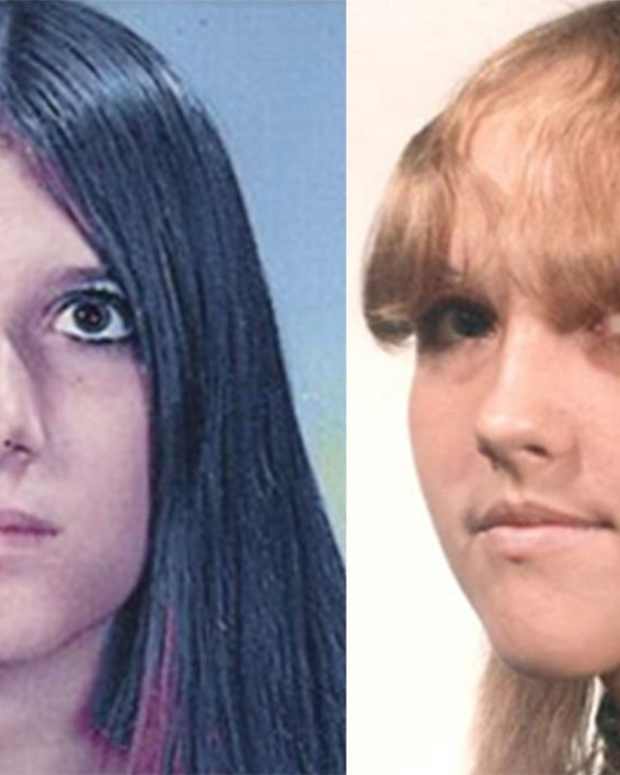The History of Forensic Psychology
Forensic psychology is a relatively new field being utilized by the criminal justice system. Despite its novelty, forensic psychology is a rapidly developing field, partly owing its popularity to the media with the release of TV shows such as Criminal Minds and Mindhunter. While programs such as these depict a less-than accurate picture of the field, they have helped increase awareness of the new forensic tool. Although forensic psychology was initially viewed as a strictly clinical tool for assessing an individual’s ability to stand trial, it has now broadened its usefulness to a wide variety of avenues that had previously never been conceived.
Forensic psychology originated in 1893 with James McKean Cattell’s investigation into the accuracy of eye witness testimony (Tartakovsky, 2019). During this time, psychology was viewed as a pseudoscience but because of Cattell’s contributions to the field, psychology became an established science worthy of higher study thus why Cattell is credited as being the first professor of psychology in the United States. Using his position, Cattell interviewed a large sample of college students, asking basic questions such as “what was the weather like last week” and then asking the students to rate their level of confidence. After examining the alarming disparity between confidence and incorrect answers, Cattell made the revolutionary discovery that “confidence does not equal correctness.” In 1901, William Stern furthered this research by staging an argument in front of students and then asking them to provide written and oral reports of the event. He found that the number of inaccuracies in the student’s accounts peaked when the tension was highest, suggesting that emotions can reduce the accuracy of memory recall (Tartakovsky, 2019). Both surveys were significant in showing that no matter how confident, eye-witness testimonies can be highly inaccurate especially when involving stress.
Fascinated by the results of his own study, Stern went on to establish the journal, Contributions to the Psychology of Testimony. In this journal, Stern wrote about a variety of court room procedures that if left unchecked, could result in wrongful convictions. Some of these procedures included interviewing children as credible witnesses, using police lineups, and having lawyers pose suggestive questions that can influence a witness’s recall (Tartakovsky, 2019). Due to the success of his many journals, courtrooms in many different states adhered to Stern’s findings and proceeded with caution in cases that relied solely on eyewitness accounts. Stern’s pioneering research was the first to show how psychology intersects with the law.
While Stern’s research was crucial in the development of psychology in the courtroom, it wasn’t until 1896 that a psychologist testified for the first time as an expert witness in a criminal trial. Albert von Schrenck-Notzing testified in a trial of a man accused of killing three women. The German psychologist spoke of the dangers of accepting witness statements in large media centric cases. He argued the media can cloud the witnesses’ memories because they were unable to separate their own memories with what the press was reporting (Tartakovsky, 2019). This was the first time that a psychologist’s opinion was allowed as testimony in a criminal trial, thus setting precedent for future expert witness standards.
However, forensic psychology is used for more than just examining the credibility of eyewitness testimony. A few years after Albert bon Schrenck-Notzing’s revolutionary trial, a psychologists’ testimony was used to assess the mental capacity of a man accused of murder. In 1906, a man confessed to murder but later recanted his confession. His defense attorney believed the man to be mentally disabled and asked German psychologist Hugo Munsterberg to review the case. Munsterberg believed the man to be innocent however the judge was furious that a psychologist had expertise in the case and sentenced the defendant to be hung. Angered by the judge’s dismissal, Munsterberg began furious research on how psychological factors can influence the outcome of a trial. His findings were compiled into his 1908 book On the Witness Standwhich discussed problems with eyewitness testimonies, false confessions, and interrogations (Tartakovsky, 2019). His writings opened new avenues of research for forensic psychologists within the criminal justice system that are still being explored today.
Since the world wars, there has been a significant shift in interest for forensic psychology which can partially be contributed to the role of the media. Due to the sensationalized portrayals of the field in movies and television, more graduates are choosing to study forensic psychology. Due to this exponential growth in popularity, the field became officially recognized by the American Psychology Association as a specialization in 2001 (Tartakovsky, 2019).
During the 1940’s and 1950’s, when the world wars were occurring, the field of forensic psychology became idled (Tartakovsky, 2019). Part of this slump can be attributed to a shift of attention from national advancement to preservation as war continued to deplete both men and resources. However, another factor may have also contributed to this hiatus. Shortly after the end of the wars, a district court deemed medical witnesses as having more expertise than psychologists, thus leading to a dismissal of several psychologist’s expert testimonies (Jenkins v. United States, 1962). Frustrated by this ruling, the defense appealed the ruling, thus jumpstarting the stalled field of forensic psychology.
VincentE. Jenkins was a defendant who mounted an insanity defense after being arrested for “housebreaking with intent to commit an assault, assault with intent to rape, and assault with a dangerous weapon.” Three psychologists testified for Jenkin’s defense saying that during the time of the assault, the defendant was suffering from a mental illness, schizophrenia, and therefore was not sane when he committed the offense (Jenkins v. United States, 1962). The three clinical psychologists asked to testify ranged from 3 to 25 years of clinical experience and all had received Ph.D.’s from various APA accredited institutions (DeAngelis, 2019). Based upon their personal contact with the defendant, a review of the case history, and upon the basis of standardized psychological tests, each of the psychologists who testified agreed that during the time of the alleged crimes, the defendant was suffering from schizophrenia. Two of the three psychologists believed that the disease and the crimes were “related” and that the crimes themselves were a direct product of the mental illness (Jenkins v. United States, 1962).
Despite the credentials of the psychologists, at the end of the trial, the district judge instructed the jury to disregard the psychologists’ testimonies on the grounds that psychologists were disqualified from testifying about mental diseases because they “lack medical training.” After disregarding the opinions of the defense’s mental health experts, Jenkins was convicted in district court. However, the defense thought their case was not properly tried and thus filed for an appeal (Jenkins v. United States, 1962).
The appeal was filed on the grounds that the court erred in determining several factors, including Jenkin’s ability to stand trial. The defense also argued that the court was wrong to “exclude diagnostic opinions of two defense psychiatrists because their opinions were without ‘proper bias.’” The appeal also cited that the judge was wrong to instruct the jury to disregard the testimony of 3 defense psychologists that the appellant had a mental disease or defect because ‘a psychologist is not competent to give a medical opinion as to a mental disease or defect.’” The defense’s final argument was that the court deprived Jenkins of a fair trial by conducting a “lengthy and disparaging examination of some expert witnesses (Jenkins v. United States, 1962).”
The panel of the court for the appeals process held, with only one judge dissenting, that the district court had committed “reversible error” in excluding the expert opinions of the psychologists who testified on Jenkins’ behalf. The court thus ordered a rehearing to correct “the ruling of the District Court which excluded from consideration by the jury the testimony of the psychologist concerning the existence and effects of the ‘mental disease or defect.’” On January 29, 1962, the court approved the American Psychological Association’s (APA) request for a retrial (Jenkins v. United States, 1962).
In the retrial, the summary of the arguments presented can condensed into three key points. The first, is that a qualified psychologist is competent to state his or her professional opinion in court upon matters within the scope of their qualifications. The second point was that a clinical psychologist is competent in criminal proceedings to provide an expert opinion to the “nature of and the existence or nonexistence of mental disease or defect in the accused and as to the casual relationship of lack thereof, between such mental disease or defect and the crime or crimes for which the accused is on trial.” The third point, was that the panel which first heard the appeal held that the district judge was in error to exclude the testimony of the psychologists as to the medical condition of the defendant and the relationship between his mental condition and the crimes for which he was accused (Jenkins v. United States, 1962).
The case then went to the United States Court of Appeals for the District of Columbia Circuit which reversed the district court ruling, holding that a psychologist’s diagnosis of mental disease is admissible in a criminal proceeding. The appellate court states that “the clinical psychologist is fully qualified both by occupational experience and by systematic training to express a professional expert opinion in a criminal case…” The majority opinion resulted in the establishment of qualifications for the admissibility for psychologists’ testimony. The court determined that “the determination of a psychologist’s competence to render an expert opinion based on his findings as to the presence or absence of mental disease or defect must depend upon the nature and extent of his knowledge and not simply on the claim to the title ‘psychologist.’ And that determination, after hearing, must be left in each case to traditional discretion of trial court subject to appellate review (Jenkins v. United States, 1962).”
The Jenkins case defined the psychologists as expert witnesses because they had firsthand knowledge that the jury did not regarding the state of the defendant’s mental health. The appeals court stated that for someone to be an expert they must have “the power to draw inferences from the facts that a jury would not be competent to draw.” Per the Jenkins’ case, expert testimony requires 2 elements. The first is that the subject being discussed, in this case mental health, must be distinctively “beyond the grasp of the average layman.” The second requirement is that the witness must possess a specialized set of skills that will aid them in providing an opinion in the search for truth (Jenkins v. United States, 1962).
According to multiple organizations and institutions, including The American Psychological Association, psychology is an established science. It is important to note that psychology utilizes the same fundamental methods of investigation and inquiry as every other scientifically recognized discipline. The field also has a rich history, originating all the way back to ancient philosophers trying to understand human behavior. The field is officially recognizing as starting in 1879, when professor Wilhelm Wundt founded the first psychology laboratory in Leipzig (Cherry, 2019). Since its’ establishment, psychology, like most of the sciences, has grown in both its credibility and application.
To become a psychologist, one most devote themselves to years of training and education. The individual is required to obtain either a master’s or doctoral degree while simultaneously preforming research, participating in clinical rotations, and possibly even teaching classes. Then they must choose from a variety of specialties such as forensic, counseling, or clinical psychology. Based on the specialty, the individual might have to commit to further training. A forensic psychologist, for example, must obtain a bachelor’s degree as well as a master’s degree in forensic psychology, if available. From there the individual can choose to pursue a law degree or earn a doctorate psychology degree with a concentration in forensic psychology. Then they must obtain state licensure which is a process that varies state-to-state and finally become certified with the American Board of Forensic Psychology. To earn certification, the applicant must meet all educational requirements as well as complete 100 hours of formal education and 1,000 hours of practical experience in the field (Coleman, 2019).
Considering the field’s rich history and adherence to the pursuit of knowledge, psychology can be viewed as an established scientific discipline. Because of extensive training and educational requirements, one could also argue that psychologists qualify as experts within this established profession. Thus, it would be in error to assume that psychologists are not capable of expressing an expert opinion in the criminal justice system. The APA insists that “a psychologist is clearly competent under well-established rules of evidence, to testify as an expert upon matters within the scope of his professional experience (DeAngelis, 2019).”
For anyone from any field to be considered an “expert witness,” they must demonstrate an aptitude for the topic greater than what the average man would have. Per the Federal Rules of Evidence, a qualified expert witness is “someone who has knowledge, skill, education, experience, or training in a specialized field (Falmouth, 2019).” By this definition, psychologists who have undergone the proper training and experience, are perfectly capable of testifying as expert witnesses, despite not attending medical school.
For this reason, I believe the district court judge was wrong to instruct the jury to disregard the psychologists’ testimonies. Each of the three psychologists had a Ph.D. from an APA accredited institution and years of clinical experience with mental health. One of the three psychologists was the Chief Psychologist of St. Elizabeth’s hospital; one was the Chief Psychologist of the District of Columbia General Hospital; and the third was a psychologist on staff as St. Elizabeth’s. Each of the experts also had personal contact with the defendant during his evaluation to stand competent for trial (DeAngelis, 2019). However, despite having all this knowledge, skill, education, experience, and training, the district judge still dismissed their testimony. For this reason, I think Jenkin’s counsel was within their right to request an appeal from the district court’s ruling and the appellate court was right to demand a retrial that included the psychologists’ expert testimonies.
This case is essential to the future of forensic psychology because if the original ruling from the district court was not overturned, then there would be a legal precedent to not allow psychologists to testify in court simply because they did not go to medical school. Before 1962, psychologists were not allowed to serve as expert witnesses on mental illness (DeAngelis, 2019). Today their contributions to the legal system are immeasurable ranging from a variety of services such as determining an individual’s ability to stand trial to providing the most effective sentencing for a particular offender. When the appellate court ruled that psychologists were qualified to testify in criminal trials, they revived the post-world war stalled field of forensic psychology and gave legal credibility to the field as a scientific discipline. No longer would expert witnesses require a background in medical training to testify about mental illness. Instead, they could rely on their own specialized education and training to make a determination about a defendant’s mental state.
Works Cited
Cherry, K. (2019, March 9). The Origins of Psychology. Retrieved March 14, 2020, from https://www.verywellmind.com/a-brief-history-of-psychology-through-the-years-2795245
Coleman, S. (2019, December). Forensic Psychology Degrees & Careers: How to Become a Forensic Psychologist. Retrieved March 12, 2020, from https://www.learnhowtobecome.org/psychologist/forensic-psychologist/
DeAngelis, T. (2019, December 1). Informing the courts with the best research. Retrieved March 14, 2020, from https://www.apa.org/monitor/2019/12/cover-courts.html
Falmouth, S. (2019, July). Expert Witness Requirements. Retrieved March 12, 2020, from https://seak.com/blog/expert-witness/expert-witness-requirements/
Jenkins v. United States, 307 F.2d 637 (D.C. Cir. 1962)
Tartakovsky, M. (2018, July 8). How Forensic Psychology Began and Flourished. Retrieved March 12, 2020, from https://psychcentral.com/blog/how-forensic-psychology-began-and-flourished/



















